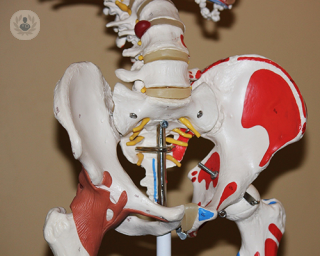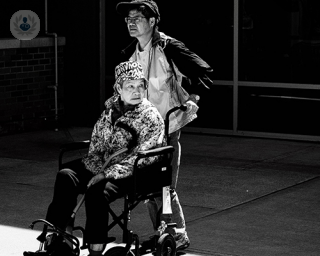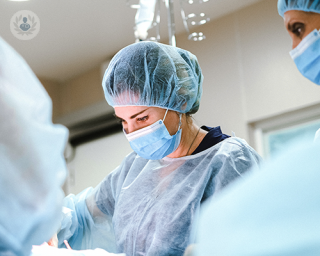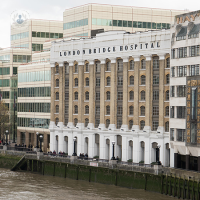Revision hip replacement
Professor Lee Jeys - Orthopaedic surgery
Created on: 10-06-2017
Updated on: 08-17-2023
Edited by: Sophie Kennedy
What is revision hip replacement?
Hip replacement surgery is a very successful procedure and many patients undergoing a total hip replacement do not experience any problems. Over time, however, it may become necessary for hip replacements to be revised and for further surgery to be performed.
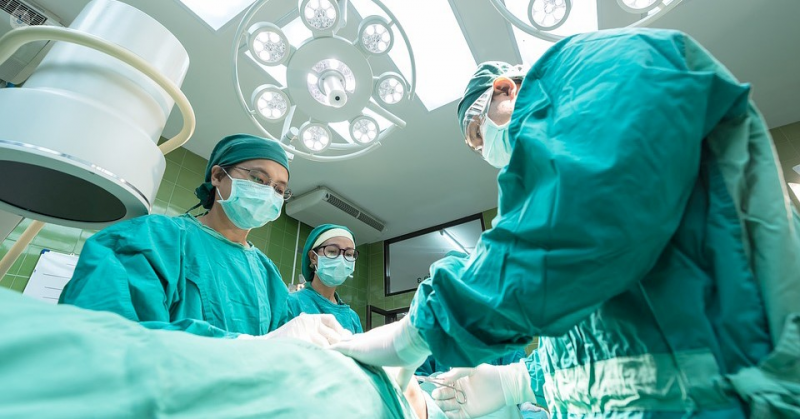
Why is it done?
Most hip revision surgeries are done because the hip has become loose, due to the ball wearing the socket down. This leads to inflammation and the loosening of the socket. Often patients who have had a hip replacement at a young age and those who partake in a lot of physical activity will need a revision hip replacement sooner.
Other reasons that a hip replacement needs to be carried out are:
- The hip has become dislocated due to an infection
- A fracture has caused the hip replacement to require a revision
- Malalignment; the original implant was positioned incorrectly
What does it involve?
Revision hip surgery is a major surgery that can take 3 or more hours. It involves the removal of the old hip and replacing it or restoring the damaged bone.
Most patients will be catheterised during the operation, and the catheter will be removed 2 to 3 days after the operation. Revision hip surgery is more complex, which means that complications can occur more frequently.
How do I prepare for it?
One to two weeks before the surgery, you will be brought into the hospital for an assessment. Routine tests, such as blood tests, urine tests and MRSA screening will be carried out at the hospital. On the day of the surgery, your surgeon will answer any questions that you have and you will meet with the anaesthetist.
Post-operative care
After the operation, your surgeon and physiotherapist will decide how quickly you can bear weight on the hip. Your physiotherapist will teach you how to safely get in and out of bed, the bathtub and car. You will be asked to wear compression stockings for the next six weeks to reduce the risk of developing a blood clot. It will be advisable to sleep on your back and to avoid bending at the hip, twisting your waist and crossing your legs.
When you can safely walk and your wounds are clean and have healed, you will be discharged. Most patients go home 5 to 6 days after the surgery. It generally takes about 6 weeks for patients to walk with one stick and most patients return to work after about eight weeks, depending on how much revision surgery was required.

